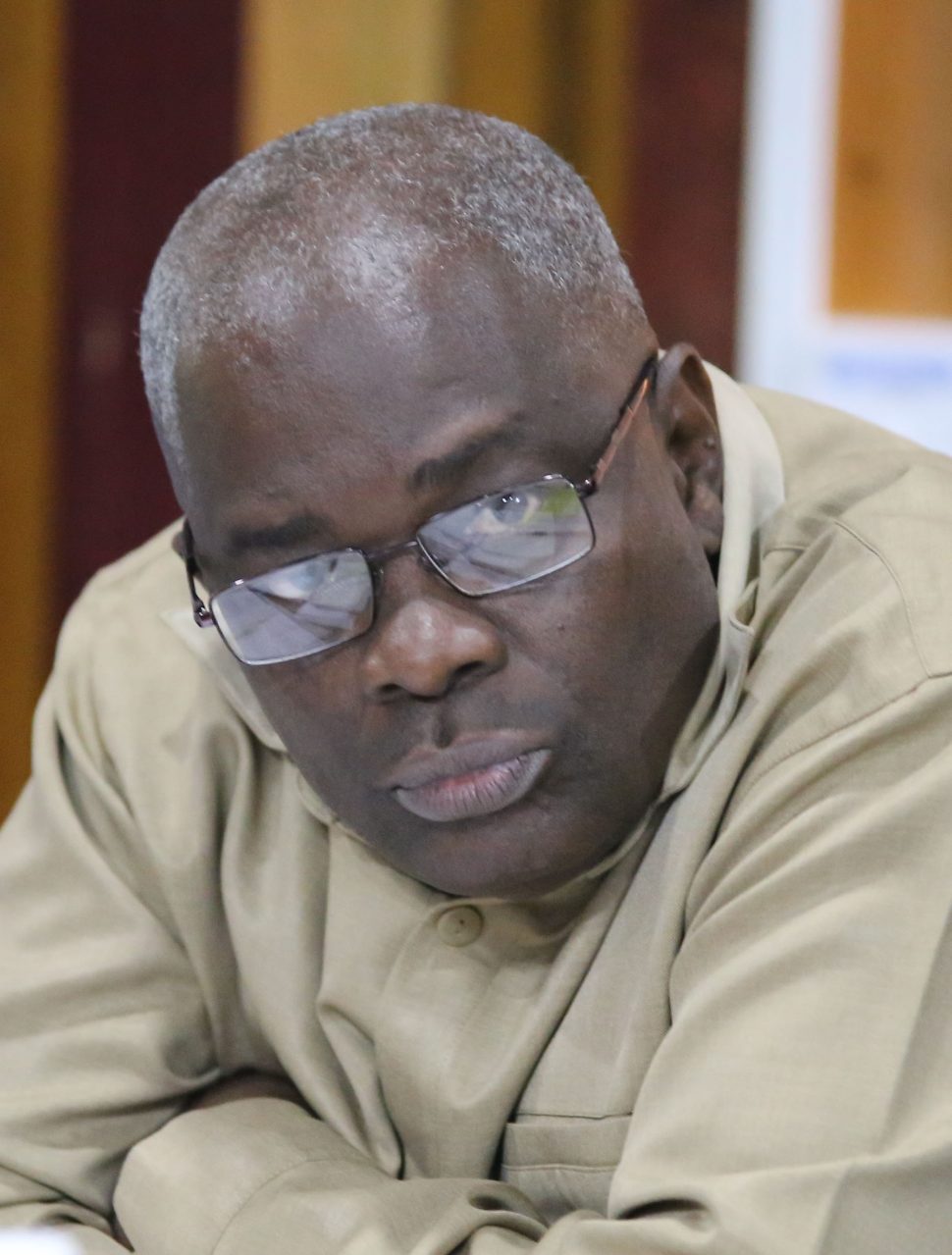Attorney Anil Nandlall has written to Chief Election Officer (CEO), Keith Lowenfield, demanding that GECOM refrain from proceeding with the “unlawful and unconstitutional” house-to-house registration exercise.
In correspondence dispatched yesterday, on behalf of People’s Progressive Party (PPP)- nominated GECOM Commissioner, Robeson Benn, Nandlall opined that such an exercise is “fraught with hazards, including, the violation of the Constitution and Constitutional rights of qualified electors”. Furthermore, he stated that the exercise would potentially result in the corruption of the entire elections process.
As such, Nandlall called on Lowenfield to refrain from embarking on the exercise, which he said “will disenfranchise thousands of persons now qualified to vote”.
He gave the CEO seven days in which to respond to his demand, after which, Nandlall said he will assume it has been rejected and will have no choice other than to advise his client to institute legal proceedings to prevent Lowenfield from embarking on or proceeding with the registration exercise.
Nandlall noted that GECOM’s move to house-to-house registration is based on the supposition that the voter’s list is “”bloated” with dead persons and persons who have migrated”. The fix for the former, he stated, would simply be for Lowenfield to engage the Office of the Registrar General to compare data and make adjustments, a process he opined can be done within a fortnight and does not require “the tedious, expansive and anachronistic methodology of a house-to-house inspection – a process to which there is rarely resort in this technological age, elsewhere”.
With regards to those who have migrated, Nandlall opined that the registration process will indirectly add a new qualifying voter requirement not provided for by the Constitution, that requirement being, ‘residency within Guyana’.
“Article 159 provides that no one shall vote at an election unless he is registered as an elector and a person shall be qualified to be so registered, if on the qualifying day, that person is eighteen years and over and a citizen of Guyana or, a Commonwealth citizen, who is domiciled and resident in Guyana for a period of one year immediately preceding the qualifying date,” he noted.
“It is excruciatingly clear that neither residency nor domicile within the State of Guyana are qualifications which a citizen of Guyana must possess before he is eligible for to vote or to be registered as an elector. The natural corollary is the lack of residency and domicile within the State of Guyana cannot be the basis for disqualifying a person from being registered or from voting. In short, a Guyanese, residing either permanently or temporarily in Timbuktu, once he or she is eighteen years and over is qualified to be registered and, if registered, is qualified to vote. At this juncture, it is apposite that I emphasize that by acquiring citizenship of another country, a Guyanese citizen, does not necessarily lose his/her Guyanese citizenship. He/ she remains a citizen of Guyana and, therefore, qualifies to be registered and, if registered, qualifies to vote. So, while dual citizens are disqualified from being elected, they are not disqualified from being electors,” he added.
Nandlall went on to state that GECOM is now proceeding with house-to-house registration in order to create a new List of National Registrants from which the Preliminary Voters’ List will be drawn. Furthermore, the exercise, he said, is being done with the stated intention of excluding persons who will be absent from Guyana during the exercise.
“Consequently, those persons who are currently duly registered and are on the List and, therefore, now qualified to vote but absent from Guyana, are now going to be intentionally excluded from the List in this proposed process, as this is one of the stated purpose of this exercise. In other words, these persons are going to be de-registered and thereby disqualified from voting and denied their constitutional right to vote, through no fault of theirs,” he added.
On Friday, Minister of State, Joseph Harmon, said overseas-based Guyanese have to be present in Guyana during the house-to-house registration period if they want to vote in the next general elections.
“…if you reside overseas and you are not there at the time when the enumerators go to your house, then you cannot be considered to be on the list of electors. It’s not a matter of disenfranchising anyone,” he said during a post-cabinet press briefing held at the Ministry of the Presidency.
Harmon was asked to respond to claims that the house-to-house registration will disenfranchise Guyanese living overseas.
While noting that when the enumerators go to the various addresses “you should be there,” the minister reminded that Guyana’s law does not provide for overseas voting save and except those persons who are in the employ of the state and are in the embassies.
He insisted that persons who are Guyanese residing abroad at the time of house-to-house registration, would be unable to find their names on the voters’ list if they are not present at their local addresses when the registration exercise takes place. “That is why house-to-house is so important,” he stressed.
In early February, government supporters protested near the Guyana Elections Commission (GECOM) to demand that house-to-house registration be conducted before the next general and regional elections are held.
It was argued that the existing voters’ list, which expires on April 30th, is ‘bloated’ and ought to be cleansed of all the dead people and those who are not residents. Views were also expressed that a claims and objections period would not be enough to “purge the list” to the degree necessary.









